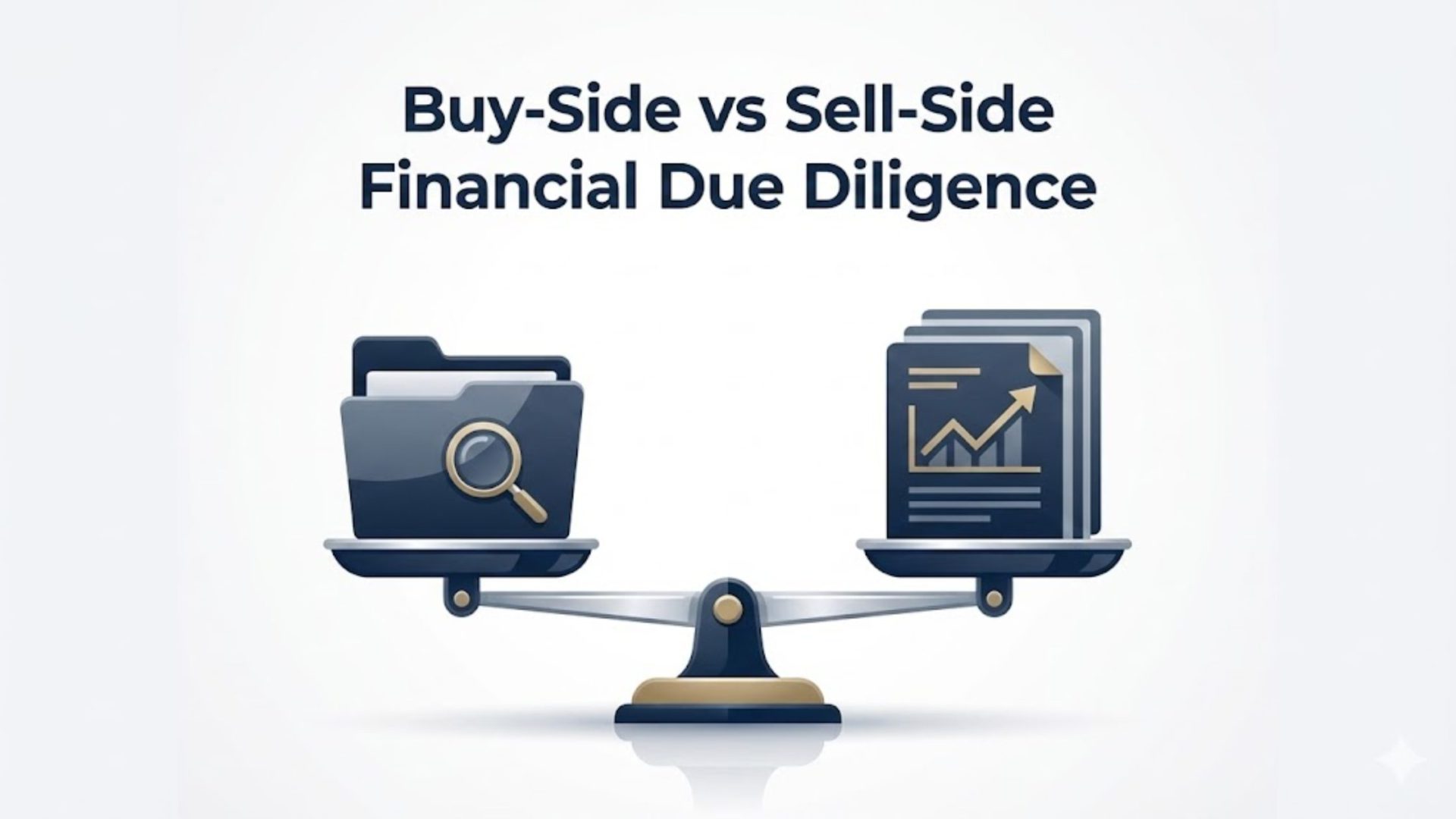Inside Investment Banking Advisory: From M&A to PE
Published on 19/7/2025

I. The Role of Investment Banking Advisory in Modern Finance
In today’s complex and competitive business landscape, investment banking advisory has emerged as a strategic pillar for companies aiming for growth, transformation, and value creation. At its core, investment banking advisory involves expert guidance on corporate finance decisions, encompassing capital raising, business acquisitions, restructuring, and financial risk management. These services are crucial in corporate finance, as businesses must navigate not only local but also global financial environments, seize market opportunities, and ensure regulatory compliance. For growing businesses, engaging a trusted investment banking firm can mean the difference between executing a sound strategy and missing out on transformational deals, whether it’s a successful merger, capital infusion, or new market entry.
II. M&A Advisory Services: Guiding Strategic Business Combinations

Mergers and acquisitions (M&A) serve as engines of consolidation, synergy, and market expansion for both established corporations and high-growth companies. M&A advisory services guide clients through the lifecycle of a deal—from identifying strategic targets to negotiation and post-transaction integration. M&A advisors provide critical support in:
- Deal Structuring: Selecting the right approach for mergers, acquisitions, divestitures, and alliances.
- Due Diligence: Assessing the target for financial, legal, and operational risks, ensuring informed decision-making.
- Negotiation and Execution: Drawing on deep industry experience to negotiate deal terms and secure optimal outcomes.
Strong due diligence is a hallmark of successful mergers and acquisitions consulting, as it safeguards client interests and mitigates unknown risks. Experienced Merger and Acquisition consultants can guide your business through this complex process with confidence and precision.
III. Private Equity Consulting: Supporting Long-Term Investment Growth
Private equity (PE) consulting focuses on optimizing long-term value for investors and businesses through structured investments. Private equity consulting firms like Inspirigence Advisors assist with:
They offer end-to-end support—from deal sourcing to exit strategy—ensuring each investment delivers sustainable growth and strong returns.
- PE Funding: Sourcing, structuring, and executing growth investments across industries.
- Strategic Exits: Planning and managing buyouts, divestitures, and public listings for robust returns.
- Portfolio Strategy: Optimizing performance, governance, and stakeholder alignment in PE-backed organizations.
While venture capital (VC) primarily supports early-stage, high-growth startups, PE usually targets mature businesses, emphasizing transformative impact and sustainable value creation.
IV. Financial Deal Structuring: Engineering Profitable Outcomes

Financial deal structuring is about designing a transaction—whether M&A, fundraising, or restructuring—for maximum advantage. Experienced investment banking advisors engineer deals through:
- Debt vs. Equity Structuring: Recommending the right balance based on the company’s strategic objectives, cash flow profile, and market conditions.
- Instruments and Tactics: Leveraging shares, convertible securities, mezzanine finance, and hybrid structures to align investor and company interests.
- Advisory Strategies: Tailoring solutions for complex situations, such as cross-border deals or distressed asset acquisitions.
Such sophisticated investment banking strategies ensure that every deal supports both immediate needs and long-term ambitions.
V. Business Valuation Techniques Used in Investment Banking
At the heart of every major transaction lies business valuation—a precise, scientific process vital for fairness, compliance, and negotiation. Investment banks use multiple methods, including:
- Discounted Cash Flow (DCF): Projecting future cash flows and discounting them to present value using a calculated rate.
- Comparable Company Analysis (CCA): Benchmarking similar public companies to derive valuation multiples.
- Precedent Transaction Analysis (PTA): Studying past deals in the same sector to identify valuation trends.
In both M&A and private equity, accurate valuation underpins price discovery and ensures stakeholders receive a fair outcome. Advisors also provide vital fairness opinions that support regulatory and board approvals.
VI. Capital Advisory Services: Raising Funds to Scale Operations
Access to capital is the lifeblood of scaling businesses. Capital advisory services encompass expert support on raising debt, equity, or hybrid capital through:
- Equity and Debt Capital Raising: Structuring private placements, syndicating loans, or pursuing market listings.
- IPO Advisory Services vs. Private Placements: Guiding companies on public offerings versus more controlled, private capital infusions.
An expert investment banking advisor helps companies optimize capital structures, control dilution, and time fundraises to market cycles for strategic advantage.
Complex dealmaking requires methodical planning and collaboration across disciplines. The advisory workflow typically includes:
- Initial Strategy & Engagement: Understanding objectives, reviewing market conditions, and developing bespoke strategies.
- Valuation & Financial Analysis: Rigorous due diligence, modeling, and scenario planning.
- Negotiation & Structuring: Bringing together buyers, sellers, lenders, and legal teams.
- Execution & Integration: Ensuring seamless closing, regulatory compliance, and value maximization post-deal.
Boutique investment banks and specialized advisory firms add value with agility, sector knowledge, and senior-level attention tailored to mid-market and high-growth companies.
VIII. Emerging Trends & Challenges in Investment Banking Advisory (2026 & Beyond)

The financial advisory landscape is being revolutionized by:
- AI and Analytics: Automated data analysis expedites deal sourcing, due diligence, and strategic insights.
- ESG Compliance: Sustainable and responsible investing are top priorities, impacting valuation and deal approval.
- Regulatory Shifts: Speed of regulatory evolution necessitates an agile response from advisory teams.
By embracing technology and upholding stewardship in ESG, leading firms help clients thrive amid investment banking trends 2026 and evolving challenges.
IX. Conclusion: Why Businesses Should Partner with an Investment Banking Advisory Firm
Securing expert support for strategic transactions is a cornerstone of lasting business success. Key benefits of hiring investment banking advisors include:
- Maximized deal value and efficiency
- Enhanced access to investors and lenders
- Rigorous risk management and regulatory compliance
When opportunities—or challenges—arise, the right advisory partner can unlock new avenues for growth, innovation, and resilience.
Ready to elevate your business? Consult with Inspirigence Advisors—your experienced financial advisory partner—to navigate M&A, private equity, capitalization, and beyond. Unlock growth, create value, and secure your future with confidence.
Frequently Asked Questions About Investment Banking Advisory
1. What does an investment banking advisory firm do?
Answer: An investment banking advisory firm helps businesses with financial strategies such as mergers and acquisitions, capital raising, restructuring, and business valuation. They offer expert guidance to maximize deal value, manage financial risks, and support business growth.
2. How do merger and acquisition consultants add value to a deal?
Answer: Merger and acquisition consultants assist companies by identifying suitable targets, conducting due diligence, negotiating terms, and managing the integration process. Their industry experience and financial expertise help secure better outcomes and reduce deal risks.
3. What is the role of private equity consulting firms?
Answer: Private equity consulting firms support investors and companies in structuring, managing, and exiting investments. They help with deal sourcing, strategic planning, portfolio optimization, and ensuring high returns through operational improvements and governance.
4. What are the common business valuation methods used in investment banking?
Answer: Investment banks use methods like Discounted Cash Flow (DCF), Comparable Company Analysis (CCA), and Precedent Transaction Analysis (PTA). These techniques help determine a company’s fair value during mergers, acquisitions, or fundraising.
5. What’s the difference between IPO advisory and private placement?
Answer: IPO advisory involves taking a company public by listing its shares on a stock exchange, while private placement involves raising capital from selected investors without a public listing. Each has its pros and cons depending on business goals and market conditions.
6. How do investment banking advisors structure financial deals?
Answer: Investment banking advisors design deals by choosing the right mix of equity, debt, or hybrid instruments. They consider company goals, risk profile, and market dynamics to ensure the deal supports both short-term and long-term business objectives.
7. Why is due diligence important in mergers and acquisitions?
Answer: Due diligence helps uncover financial, legal, and operational risks before completing a merger or acquisition. It ensures informed decision-making and protects businesses from unforeseen liabilities after the transaction.
8. What are the current trends in investment banking advisory for 2026?
Answer: Key trends in 2026 include the use of AI for data-driven decision-making, ESG-focused deal evaluations, and rapidly evolving financial regulations. These trends are reshaping how advisory firms plan and execute financial strategies.


